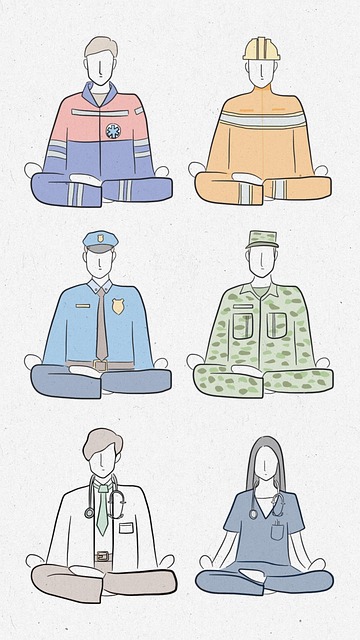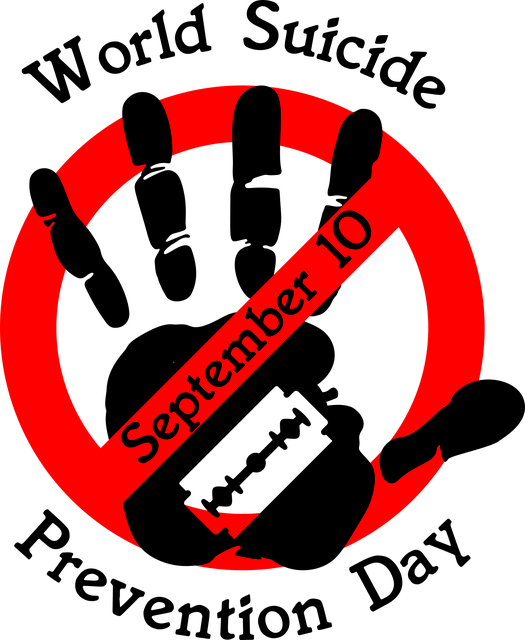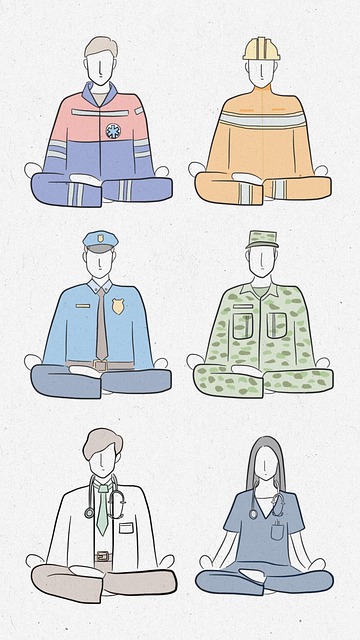Evaluating the effectiveness of Colorado Springs Couples Communication Issues Therapy requires assessing both quantitative and qualitative feedback. Tools like pre/post assessments, structured interviews, and standardized questionnaires measure outcomes such as conflict resolution skills and symptom reductions, while focus groups and one-on-one discussions provide insights into participants' experiences. Integrating these data types allows for data-driven improvements to the program. Long-term tracking of participants' progress is crucial to understanding the true success of the therapy in fostering lasting positive changes in communication, self-esteem, and relationship dynamics.
In Colorado Springs, evaluating mental wellness programs is paramount for ensuring effective support of couples grappling with communication issues. This article delves into key methods for assessing program effectiveness using specific tools and metrics tailored for local therapy initiatives. We explore participant feedback as a powerful resource for uncovering insights into resolved communication challenges. Furthermore, we examine the long-term impact of these programs, highlighting their success in enhancing Colorado Springs couples’ communication beyond the therapy room.
- Assessing Program Effectiveness: Tools and Metrics for Colorado Springs Couples Therapy
- Participant Feedback: Unlocking Insights into Communication Issues Resolution
- Long-term Impact: Measuring Success Beyond the Therapy Room in Colorado Springs Couples Communication Programs
Assessing Program Effectiveness: Tools and Metrics for Colorado Springs Couples Therapy

Evaluating the effectiveness of a mental wellness program, such as Colorado Springs Couples Therapy, is paramount to understanding its impact and making data-driven improvements. The assessment process should go beyond simple client satisfaction surveys, delving into measurable outcomes related to the specific goals of the program.
For Colorado Springs Couples Communication Issues Therapy, key metrics could include tracking improvements in conflict resolution skills, increases in positive communication patterns, and reductions in symptoms associated with relationship distress, like anxiety or depression (Depression Prevention). Tools like pre-and post-program assessments, structured interviews, and standardized questionnaires can provide quantitative data. Additionally, qualitative feedback from clients through focus groups or one-on-one discussions offers valuable insights into their experiences, perceived benefits, and areas for program enhancement, particularly when combined with data from Community Outreach Program Implementation and Self-Awareness Exercises.
Participant Feedback: Unlocking Insights into Communication Issues Resolution

Participant feedback plays a pivotal role in evaluating the effectiveness of mental wellness programs, particularly when addressing communication issues within couples therapy settings like those found in Colorado Springs. By gathering insights directly from individuals involved, therapists gain valuable knowledge about program strengths and areas for improvement. This feedback is crucial for refining therapeutic approaches, ensuring that interventions are tailored to meet the unique needs of each couple.
In the context of Colorado Springs Couples Communication Issues Therapy, participant evaluations can highlight challenges related to active listening, conflict resolution strategies, or emotional expression. For instance, some couples might emphasize the need for better mindfulness meditation techniques to enhance focus and understanding during discussions. Others may suggest incorporating burnout prevention strategies to manage stress and improve communication when facing demanding lifestyles. Moreover, feedback often underscores the positive impact of confidence-boosting activities on fostering open dialogue and strengthening relationships.
Long-term Impact: Measuring Success Beyond the Therapy Room in Colorado Springs Couples Communication Programs

Evaluating the long-term impact of mental wellness programs is essential to understanding their true success and effectiveness beyond the therapy room. In Colorado Springs, couples communication issues have been a significant focus area, with various programs aiming to strengthen relationships and foster healthier interactions. These initiatives go beyond immediate improvements; they aim to cultivate lasting positive changes.
The key to measuring success lies in tracking participants’ progress in building inner strength, adhering to mind over matter principles, and witnessing self-esteem improvement. By assessing these factors, researchers and therapists can determine if the programs have created sustainable change in the lives of couples, ultimately enhancing their overall mental wellness. This holistic approach ensures that the benefits extend far beyond individual therapy sessions, impacting relationships and personal growth for years to come.
Evaluating mental wellness programs, particularly those focused on Colorado Springs couples communication issues therapy, requires a multifaceted approach. By combining assessment tools that measure program effectiveness, participant feedback that highlights improvements in communication skills, and long-term impact studies that track success beyond the therapy room, we can gain valuable insights into what works best. These methods enable professionals to refine programs, ensure positive outcomes, and ultimately enhance the well-being of couples seeking help in Colorado Springs.














